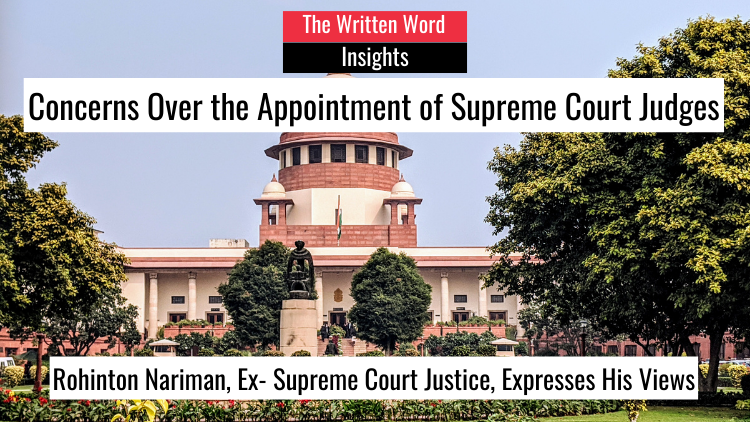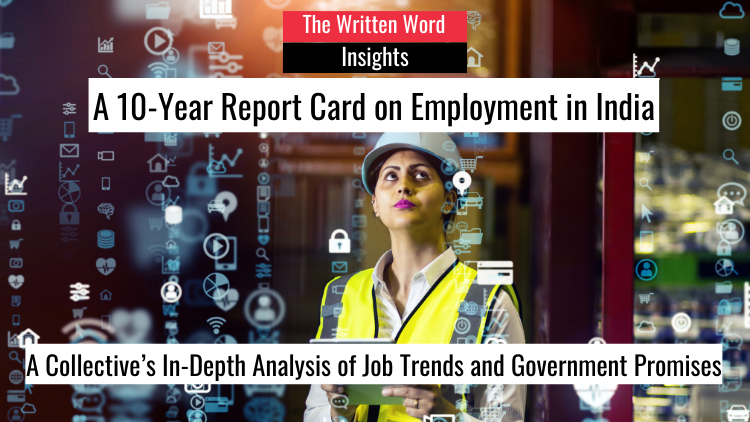
Chhattisgarh Activist Announced ‘Green Nobel’ Winner for Saving Forest
Alok Shukla, the 43-year-old convener of Chhattisgarh Bachao Andolan (CBA), will receive the 2024 Goldman Environmental Prize, recognised globally as the Green Nobel. This honor celebrates his leadership in grassroots movements that has thwarted the establishment of 21 coal mines, safeguarding 445,000 acres of biodiverse forest.

Former Congress Leader Predicts Victory for Opposition’s ‘INDIA’ Bloc
Sanjay Jha, a former Congress leader and party spokesperson, wrote a post on social media outlining his belief that the Opposition’s INDIA – Indian National Developmental Inclusive Alliance – stands poised for victory in the ongoing 2024 Lok Sabha elections. Drawing parallels to the historic 2004 general polls, Jha presented “11 reasons” to support his assertion, suggesting a potential shift in momentum favouring the opposition.

India’s Shift Away from Rights-Based Welfare State
India appears to be moving from a rights-based welfare model to one where welfare is presented as a benevolent gift from political leaders, with implications for the relationship between the state and its citizens, says Yamini Aiyar, a prominent public policy scholar and former President of the Centre for Policy Research in New Delhi, in an interview with the Center for the Advanced Study of India (CASI) of the University of Pennsylvania.

What’s Your Political Responsibility?
Understanding the “social contract” theory, which forms the foundation of government, can shift our perspective on politics. Social contract is the idea that a government derives its power from the consent of the governed. By surrendering some of our rights, we agree to let a governing body enforce laws and maintain social order, so that it protects our other rights and interests.

WhatsApp ‘Can’t Exist’ Under India’s Information Technology Rules
WhatsApp, the globally popular messaging platform, has told the Delhi High Court that it would cease to operate in India if forced to break its end-to-end encryption of messages. The statement was made during a hearing concerning Rule 4(2) of the Information Technology (Intermediary Guidelines and Digital Media Ethics Code) Rules, 2021, which requires social media intermediaries to trace the first originator of information when ordered by a court or competent authority.

IMF Rejects India’s 8% Growth Forecast as Unrealistic
There’s a significant disconnect between the official narrative about India’s economic growth and the underlying reality. The International Monetary Fund’s (IMF) spokeswoman Julie Kozack has clarified that the views of Krishnamurthy Subramanian, India’s representative at the IMF, do not represent the IMF’s stance. The clarification followed Subramanian’s forecast of 8% growth for India, contradicting the IMF’s official projection of 6.5%.

Australian Journalist Leaves India: ‘Too Difficult To Do My Job’
Avani Dias, the South Asia bureau chief for ABC News, has left India saying she was finding it “too difficult to do my job.” Her decision came in the wake of a denied visa extension and alleged restrictions imposed on her reporting by the Indian government.

How Citizens Can Respond to Hate Speech During Elections
Hate speech during elections is a challenge many democracies face. When the ruling party uses hateful rhetoric to dominate public discourse and divert attention from its governance failures, ordinary citizens often wonder how to respond. The key is to counter hate speech while keeping the focus on important issues such as governance and accountability.

Concerns Over the Appointment of Supreme Court Judges
Justice Rohinton Nariman, a respected former judge of the Supreme Court of India, voiced concerns about the system for appointing judges. In a speech, he drew attention to issues with how the system, which on paper appears sound, is not functioning as intended. Nariman expressed that while the framework for appointing judges is not inherently flawed, its implementation has been lacking.

Lok Sabha Elections: Do You Care About Your MP’s Performance?
Amid heated political debates and the ongoing Lok Sabha elections, a study by a civil society group has shed light on the underperformance of Karnataka’s Members of Parliament (MPs), providing a crucial lens through which to view the conduct of our elected representatives over the last five years, and thereby make better voting decisions.

Can You Trace Misinformation on Social Media?
According to a study by the Mozilla Foundation and the Finnish company CheckFirst, the ad libraries of major social media platforms—where they keep information about the ads they show—lack transparency. The issue of transparency in ad libraries, involving platforms like Meta, LinkedIn, and X (formerly Twitter), is particularly critical as over 60 countries gear up for elections in 2024, a significant and historic election year.

How Much Does the Government Invest in Our Healthcare?
Amid a severe healthcare crisis triggered by COVID-19, the financial commitment of the government to healthcare seems to be dwindling, according to a report which evaluates the central government’s performance over the last 10 years. It points out that the allocation to the Ministry of Health and Family Welfare has decreased from 2.16% of the total government expenditure in 2019-20 to 1.9% in 2024-25.

Voting Machines Allocate Additional Votes to Ruling Party in Mock Elections
Voter Verifiable Paper Audit Trail (VVPAT) machines in Kerala’s Kasaragod district recorded additional votes for the Bharatiya Janata Party (BJP) during a mock election held on April 17, two days before the start of the Lok Sabha elections, according to media reports. The event occurred despite a recent Supreme Court affirmation that Electronic Voting Machines (EVMs) produce accurate outcomes barring improper human handling.

Have Indians Been Eating Well?
A detailed analysis of the food and nutrition security situation in India over a decade has found discrepancies between government claims and actual outcomes. “Food Security and Nutrition 2014-24 Report Card” by the Financial Accountability Network India recalls that the Bharatiya Janata Party (BJP) has always held that “universal food security” is integral to national security.

Should Corporations Be Granted Access to National Defence Assets?
It has been reported that the recent pre-wedding celebration of Ananth Ambani, the youngest son of Asia’s richest man, Mukesh Ambani, involved extensive coordination with the Indian Air Force (IAF) to manage an extraordinary level of air traffic for more than a week. This unprecedented use of a military facility for a private event raises several questions and concerns.

How Much Have You Paid in Taxes Over the Last 10 Years?
Over the last decade, the tax burden on India’s middle and lower-income groups has significantly increased, while the nation’s wealthiest have continued to pay disproportionately less, revealing a deepening divide in fiscal responsibility amidst modest overall tax revenue growth, according to a report by the Financial Accountability Network–India.

Meitei Insurgents, Central Forces Accused of Killing 2 Kuki-Zo ‘Village Volunteers’ in Manipur
Violence escalated in Manipur on April 13, just days before the Lok Sabha election, as two Kuki-Zo village volunteers were killed in attacks involving gunfire and mortars, allegedly by central forces, as claimed by a local tribal organisation. Following this, Meitei insurgents and extremists entered the area, where they dragged, mutilated and stomped on the bodies, as per videos that circulated on social media.

The Worsening Plight of Farmers Over the Past Decade
The central government set a target to double farmers’ incomes by 2022, from 8,058 rupees a month to 22,610 rupees, necessitating an annual income growth rate of 10.4%. It also promised that agricultural produce would be procured at a “minimum support price” (MSP) of at least one and a half times the comprehensive cost of production. Despite these plans, the reality on the ground has been starkly different, according to an analysis by the Financial Accountability Network – India.

A 10-Year Report Card on Employment in India
A report by a collective that examines the accountability and transparency of the national financial institutions and economic policies shows discrepancies between the current government’s claims on employment generation and reality.

A 10-Year Report Card on Inflation in India
The Bharatiya Janata Party (BJP) in its 2014 election manifesto highlighted the issue of high inflation under the previous Congress-led United Progressive Alliance (UPA) government and promised to control it. The manifesto critiqued the UPA’s approach and promised corrective actions. However, the subsequent 2019 BJP manifesto did not even mention inflation, suggesting a possible reprioritisation of this issue despite earlier commitments.
